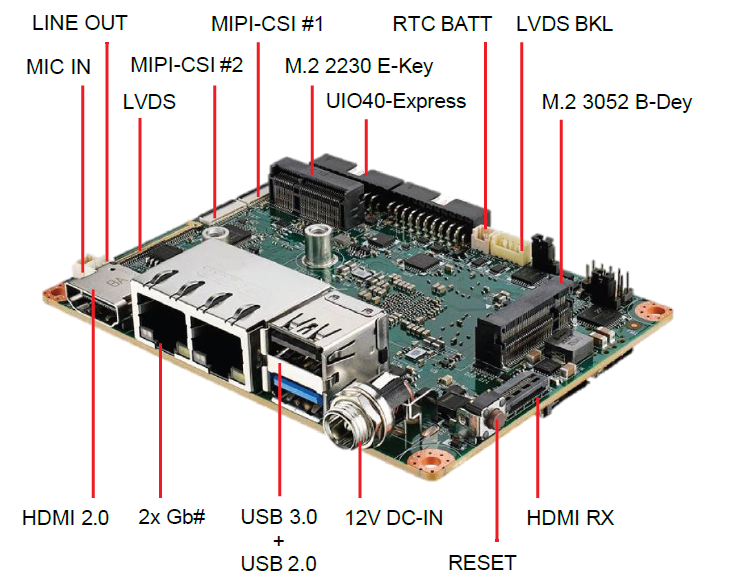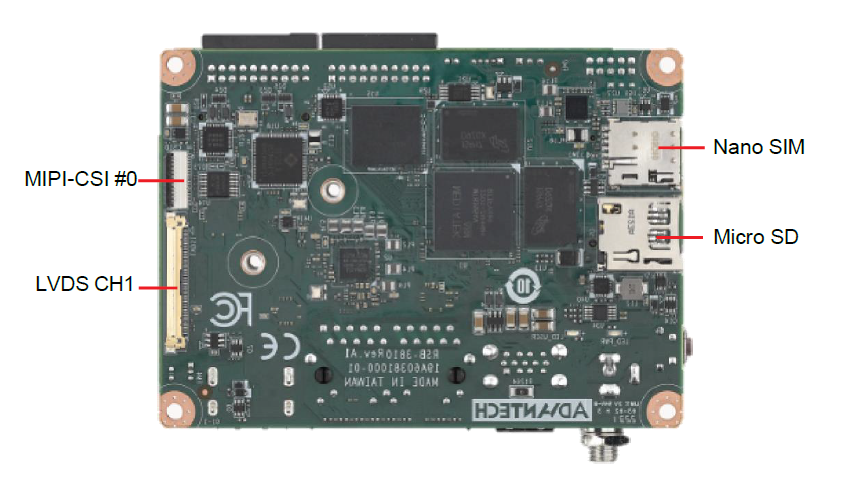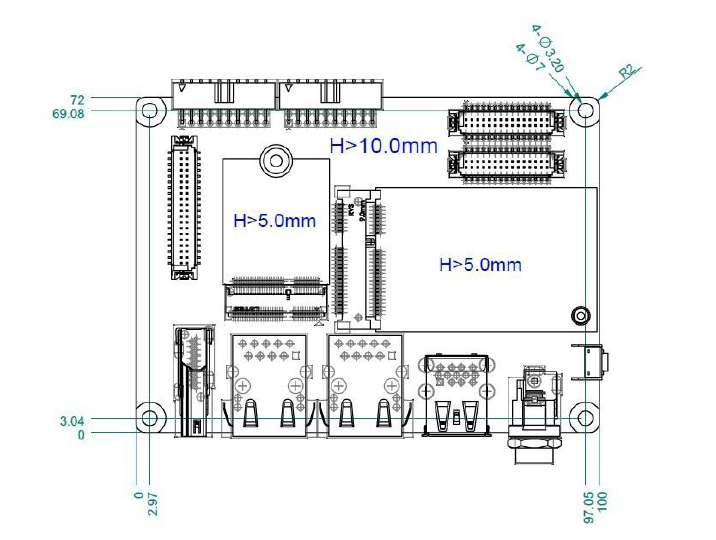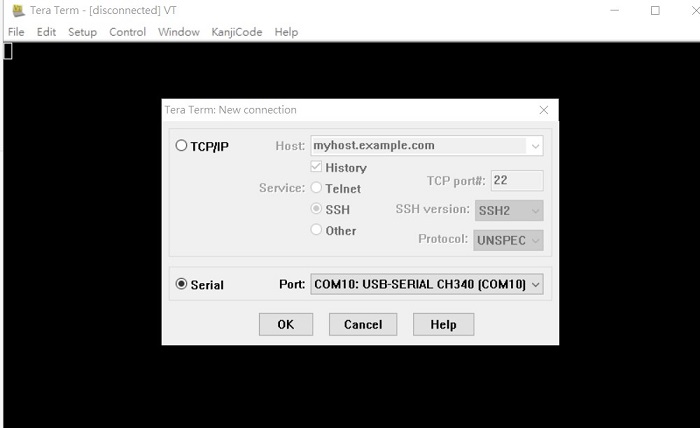Difference between revisions of "RSB-3810 user guide Android11"
Jems.cheng (talk | contribs) |
Jems.cheng (talk | contribs) |
||
| Line 113: | Line 113: | ||
| Download Key | | Download Key | ||
|} | |} | ||
| + | |||
| Line 136: | Line 137: | ||
*[http://ess-wiki.advantech.com.tw/view/File:RSB-3810-LAN.png LAN (Ethernet eth0+eth1)] | *[http://ess-wiki.advantech.com.tw/view/File:RSB-3810-LAN.png LAN (Ethernet eth0+eth1)] | ||
*[http://ess-wiki.advantech.com.tw/view/File:RSB-3810-LOUT.png LOUT (Line Out Pin Header)] | *[http://ess-wiki.advantech.com.tw/view/File:RSB-3810-LOUT.png LOUT (Line Out Pin Header)] | ||
| − | *[http://ess-wiki.advantech.com.tw/view/File:RSB-3810- | + | *[http://ess-wiki.advantech.com.tw/view/File:RSB-3810-LVDS0_1.png LVDS0 (LVDS channel 0)] |
| − | *[http://ess-wiki.advantech.com.tw/view/File:RSB-3810- | + | *[http://ess-wiki.advantech.com.tw/view/File:RSB-3810-LVDS1_1.png LVDS1 (LVDS channel 1)] |
*M2 (M.2 Key E CONN.) | *M2 (M.2 Key E CONN.) | ||
*MIC (MIC In Pin Header) | *MIC (MIC In Pin Header) | ||
Revision as of 04:53, 21 December 2023
Contents
產品介紹(Product introduction )
產品特性(Product Features)
- MediaTek Genio 1200 4核心A78和4核心A55
- 內建LPDDR4 8GB,4000MT/s記憶體
- HDMI 4k60fps,1 x 雙通道24位元LVDS
- 1 x 4線RS-232/422/485,2 x USB3.2 Gen1 By 1,2 x USB2.0,1 x Micro SD,1 x Mic. in / Line out
- 1 x M.2 3052 Key B for 5G,1 x M.2 2230 Key E Slot for WiFi/BT
- 支援UIO40-Express I/O板擴充
- 支援Ubuntu、Ycoto Linux和Android
產品官網連結(Product official website link)
硬件接口說明(Hardware interface introduction)
接口布局和尺寸(Layout and Sizes)
RSB-3810 接口布局圖 Board Dimension Layout
Jumper list:
| BL0 | Backlight Power Select for LVDS0 (Default 5V) |
| VDD0 | LVDS VDD (Default 3.3V) |
Connectot list:
| BAT | RTC Battery CONN |
| BL0 | LVDS Backlight |
| COM1 | Debug Console + RS232/RS485 |
| CSI0 | MIPI-CSI Camera Input 0 |
| CSI1 | MIPI-CSI Camera Input 1 |
| CSI2 | MIPI-CSI Camera Input 2 |
| DCIN/DCIN1 | 12V DC Power Input by DC Jack/ by Pin Header |
| HDMI | HDMI CONN |
| LVDS0 | LVDS Channel 0 CONN |
| LVDS1 | LVDS Channel 1 CONN |
| M2 | M.2 Key E CONN |
| MIC | MIC In Pin Header |
| M2B | M.2 Key B CONN |
| RST | Reset Button |
| SD | SD Slot |
| SIM | SIM Slot |
| UIO1 | UIO40-Express Pin Header 1 |
| UIO2 | UIO40-Express Pin Header 2 |
| USB1 | USB CONN. (USB 3.2 Gen 1 on TOP + USB 2.0 on BOT) |
| DL_KEY | Download Key |
接口引脚定義 (Pin definitions)
- BAT (RTC Battery CONN.)
- BL1 (LVDS Backlight 1)
- COM1 (Debug Console + RS232/RS485)
- CSI0 (MIPI-CSI Camera Input 0)
- CSI1 (MIPI-CSI Camera Input 1)
- CSI2 (MIPI-CSI Camera Input 2)
- DCIN (12V DC Jack)
- DCIN1 (12V DC-IN Pin Header)
- HDMI (HDMI CONN.)
- LAN (Ethernet eth0+eth1)
- LOUT (Line Out Pin Header)
- LVDS0 (LVDS channel 0)
- LVDS1 (LVDS channel 1)
- M2 (M.2 Key E CONN.)
- MIC (MIC In Pin Header)
- M2B (M.2 keyB CONN.)
- RST (Reset Button)
- SD (SD Slot)
- SIM (SIM Slot)
- UIO1 (UIO40-Express Pin Header 1)
- UIO2 (UIO40-Express Pin Header 2)
- USB 1 (USB 3.2 Gen 1 on TOP + USB 2.0 on BOT)
- DL_KEY(Download Key)
机械尺寸 (Mechanical Characteristics)
快速入门 (Quick Start)
系统下载 (OS Download)
Linux 燒錄方法 (Linux Flash eMMC Method)
使用Flash tool 燒錄鏡像到eMMC (Flash image into eMMC by Flash Tools)
Step0: 檢查SD卡在Linux 環境的代號 (check SD card symbol in Linux system)
Step1: 創造一張可開機的SD 卡 (Create a bootable SD card)
Step2: 將可開機的SD 卡插入底板SD卡卡槽(Plug the SD card into Carrier board 's SD card slot)
Step4: 確認開機選擇指撥開關
SD 卡開機模式:
Step3:打開電源 和 終端機 (Turn on the Power & Terminal)
Step4: 壓縮flash tools 檔案,並複製到U盤中(the flash tools file , then copy to USB Disk)
Step 5: Yocto 系統會自動掛載 U盤 在(run/media/sda1下)
並拷貝 5720A1AIM30LIVA0271_iMX8M_2G_flash_tool.tgz 到根目錄 (copy the file into Yocto system)
Commnd : cp -a 5720A1AIM30LIVA0271_iMX8M_2G_flash_tool.tgz /
在Yocto 系統中解壓縮(Unzip the file in Yocto system on ROM-5720)
Step 6. 燒錄eMMC 鏡像 (flash image into eMMC flash by flash tool file)
command : ./mksd-linux.sh /dev/mmcblk0
Step 7 . 結束燒錄後, 請改變撥碼開關至 1 on , 其他 off (eMMC開機模式) (Finish the flash process, please chanage the switch (SW1) to 1 on , others off )
移除SD卡, 拔除電源 ,改變撥碼開關 (unplug the SD card , turn off power , change the SW1 switch to eMMC mode (1 on , others off)
eMMC mode : 1 on , others off
Step 8. 重新上電開機 ( Turn on the power , then check the Debug message)
Debug 串口調試 (Debug port Setting)
以 Tera Term 为例介绍如何使用串口调试功能
Baud Rate波特率:115200 Data 数据位:8 Parity 奇偶校验:无 Stop 停止位:1 Flow Control流控:无
Tera Term Tool
Check the Sriel port in Device Manager (查看PC端的串口号):
if you can not identify the Serial device , please check your serial driver.
Debug port connection (串口連接)
Log into Terminal Tool (进入串口调试终端):
Linux系统的基本使用(Linux System Basic Operating Method)
UUU 使用方法(USB Connection (OTG port))
Display Setting (RSB-3810)
U-boot Command :
乙太網路使用方法(Ethernent Testing Method)
Command : ifconfig
Command: Ping - I eth1 8.8.8.8
WiFi使用方法(WIFI Testing Method)
Command : #killall wpa_supplicant # ifconfig wlan0 up # wpa_passphrase "SSID" "PASSWORD" > /tmp/wpa.conf # wpa_supplicant -BDwext -iwlan0 -c/tmp/wpa.conf # udhcpc -b -i wlan0 ping 8.8.8.8 PING 8.8.8.8 (8.8.8.8) 56(84) bytes of data. 64 bytes from 8.8.8.8: icmp_seq=1 ttl=54 time=2.10 ms 64 bytes from 8.8.8.8: icmp_seq=2 ttl=54 time=2.10 ms
4G使用方法(4G Testing Method)
Command:
Test 4G: (EWM-C117FL06E - USB)
Step 1: Connect EWM-C117FL06E to Mini PCIE slot on 9680015491 and connect
the card to CN6 PCIe_D slot on ROM-DB5901.
Step 2: Connect the antenna 1750007990-01 to the SMA (F) connector on
9680015491 and connect the IPEX connector to MT1 on EWM-C117FL06E module.
Step 3: Connect the Mini USB cable from 9680015491 to USB 2.0 Type A port on
ROM-DB5901.
Step 4: Power on and execute the pppd command to connect to the network.
GPIO使用方法(GPIO Operating Method)
Loop-back Test (Take GPIO4 and GPIO5 as examples) Step 1: Connect GPIO4 and GPIO5 Step 2: Export GPIO interface root@imx8mqrom5720a1 : ~# echo 0 > /sys/class/gpio/export root@imx8mqrom5720a1 : ~# echo 132 > /sys/class/gpio/export Step 3: Set direction root@imx8qxprom5720a1 : ~# echo out > /sys/class/gpio/gpio1/direction root@imx8qxprom5720a1 : ~# echo in > /sys/class/gpio/gpio2/direction Step 4: Read value and set output value then check root@imx8mqrom5720a1 : ~# cat /sys/class/gpio/gpio2/value 1 root@imx8mqrom5720a1 : ~# echo 0 > /sys/class/gpio/gpio1/value root@imx8mqrom5720a1 : ~# cat /sys/class/gpio/gpio2/value 0
串口使用方法(Serial Port Operating Method)
RS-232 Test
Loopback test (eg. ttymxc1)
Before loopback test, we should connect tx and rx
<span style="background:#eeeeee">stty -F /dev/ttymxc1 115200 stty -F /dev/ttymxc1 ?echo cat /dev/ttymxc1 & echo test > /dev/ttymxc1</span>
=== 蓝牙使用方法(BlueTooth Operating Method) ===
Command :
$ hciconfig hci0 up
$ bluetoothctl
$ discoverable on
$ pairable on
$ scan on
[NEW] FC:18:3C:8D:75:F4 myphone
$ scan off
$ pair FC:18:3C:8D:75:F4
$ connect FC:18:3C:8D:75:F4</pre>
遠程訪問及文件傳輸(Remote Access and File Transimmion)
查看主板IP位址 ( Chech IP Address ):
Command : ifconfig
Windows下SSH访问及文件传输
SSH Remote Log into Device
- SSH远程登录,以putty选择putty.exe(或者使用Xshell、SecureCRT等类似软件)
*需要设置远程设备的IP、通讯端口(默认22)、通讯方式,登录后验证用户名密码
通用方法(General Method)
=== 查看CPU温度(Check CPU Temperature) ===
root@imx8qxprom5720a1:/# cat /sys/devices/virtual/thermal/thermal_zone0/temp 44600
- 或者直接以度爲單位顯示 echo $[$(cat /sys/class/thermal/thermal_zone0/temp)/1000]° >>> 45°</pre>
=== 查看CPU频率(Check CPU Frequency) ===
cat /sys/devices/system/cpu/cpu0/cpufreq/cpuinfo_cur_freq
>> 900000
cat /sys/devices/system/cpu/cpu0/cpufreq/cpuinfo_max_freq
>> 1200000
=== 查看内存容量(Check Memory Capacity) ===
root@imx8qxprom5720a1:/# busybox free -m
total used free shared buffers cached
Mem: 1794920 516080 1278840 17252 9852 80292
-/+ buffers/cache: 425936 1368984
Swap: 0 0 0
=== 查看存储容量(Check Storage Capacity) ===
root@imx8qxprom5720a1:/# busybox df -h
Filesystem Size Used Available Use% Mounted on
/dev/root 13.4G 1.7G 11.1G 13% /
devtmpfs 395.8M 4.0K 395.8M 0% /dev
tmpfs 876.4M 0 876.4M 0% /dev/shm
tmpfs 876.4M 16.5M 859.9M 2% /run
tmpfs 876.4M 0 876.4M 0% /sys/fs/cgroup
tmpfs 876.4M 4.0K 876.4M 0% /tmp
tmpfs 876.4M 280.0K 876.2M 0% /var/volatile
/dev/mmcblk0p2 13.6G 1.7G 11.3G 13% /run/media/mmcblk0p2
/dev/mmcblk0p1 63.9M 23.4M 40.5M 37% /run/media/mmcblk0p1
/dev/mmcblk1p1 63.9M 23.4M 40.5M 37% /run/media/mmcblk1p1
tmpfs 175.3M 88.0K 175.2M 0% /run/user/0
root@imx8qxprom5720a1:/#
=== 網路Ping測試(Ping Network Testing) ===
ping 8.8.8.8
PING 8.8.8.8 (8.8.8.8) 56(84) bytes of data.
64 bytes from 8.8.8.8: icmp_seq=1 ttl=54 time=2.10 ms
64 bytes from 8.8.8.8: icmp_seq=2 ttl=54 time=2.10 ms</pre>
=== 設置RTC (RTC Setting) ===
root@imx8qxprom5720a1:/# systemctl stop ntpdate.service
root@imx8qxprom5720a1:/# date 090816072021 && hwclock -w && date
Wed Sep 8 16:07:00 UTC 2021
Wed Sep 8 16:07:00 UTC 2021
root@imx8qxprom5720a1:/# date
Wed Sep 8 16:07:06 UTC 2021
root@imx8qxprom5720a1:/#
Mic錄音 (Mic record)
- amixer set Mic 20%
- arecord -D plughw:0,0 -r 16000 -f S16_LE ./f-16000.wav
- aplay ./f-16000.wav
PCIe裝置移除與rescan
root@imx8qxprom5720a1:/# echo "1" > /sys/bus/pci/devices/0000\:01\:00.0/remove --eth1 will be remove (check with ifconfig)
root@imx8qxprom5720a1:/# echo "1" > /sys/bus/pci/rescan --eth1 will back after run this command.






